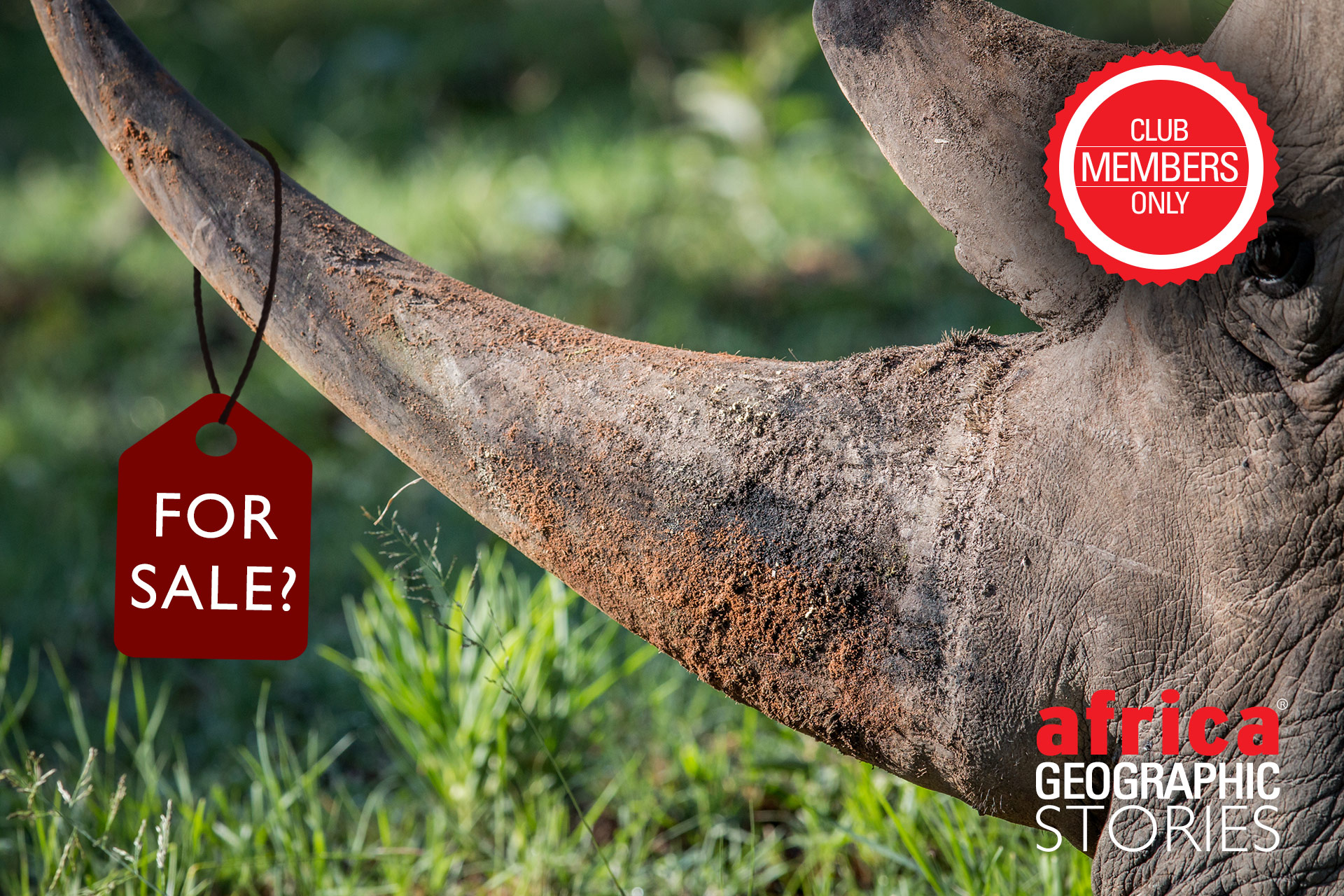
Rhino horn trade - yes or no

Why did rhino poaching flare up so suddenly in South Africa just over a decade ago?
The answer to this question may provide some useful clues while searching for solutions to douse, or at least dampen, the recent poaching inferno that has swept over Southern Africa and extinguished the lives of close to ten thousand of these iconic animals. Rhino poaching is not new of course. For centuries, hunters and horn poachers of all hues have been slaughtering them across Africa and Asia – some to hang on the walls of lounges and trophy rooms, some to be carved into dagger handles or kept as status symbols, or simply crushed up for use in traditional Chinese medical potions.
Yet there was a critical point – in 2008 – when horn poaching literally exploded in South Africa – the last, large bastion of global rhino conservation.
Whoosh! It was almost as if a match had been tossed over a petrol-soaked land to ignite a massive bush fire that would spread out to engulf just about every piece of land in South Africa where rhinos had thrived for several decades in relative safety, in stark contrast to rhino populations in most other parts of Africa.
Login or get our app to read more (it's free!)
To comment on this story: Login (or sign up) to our app here - it's a troll-free safe place 🙂.![]()






